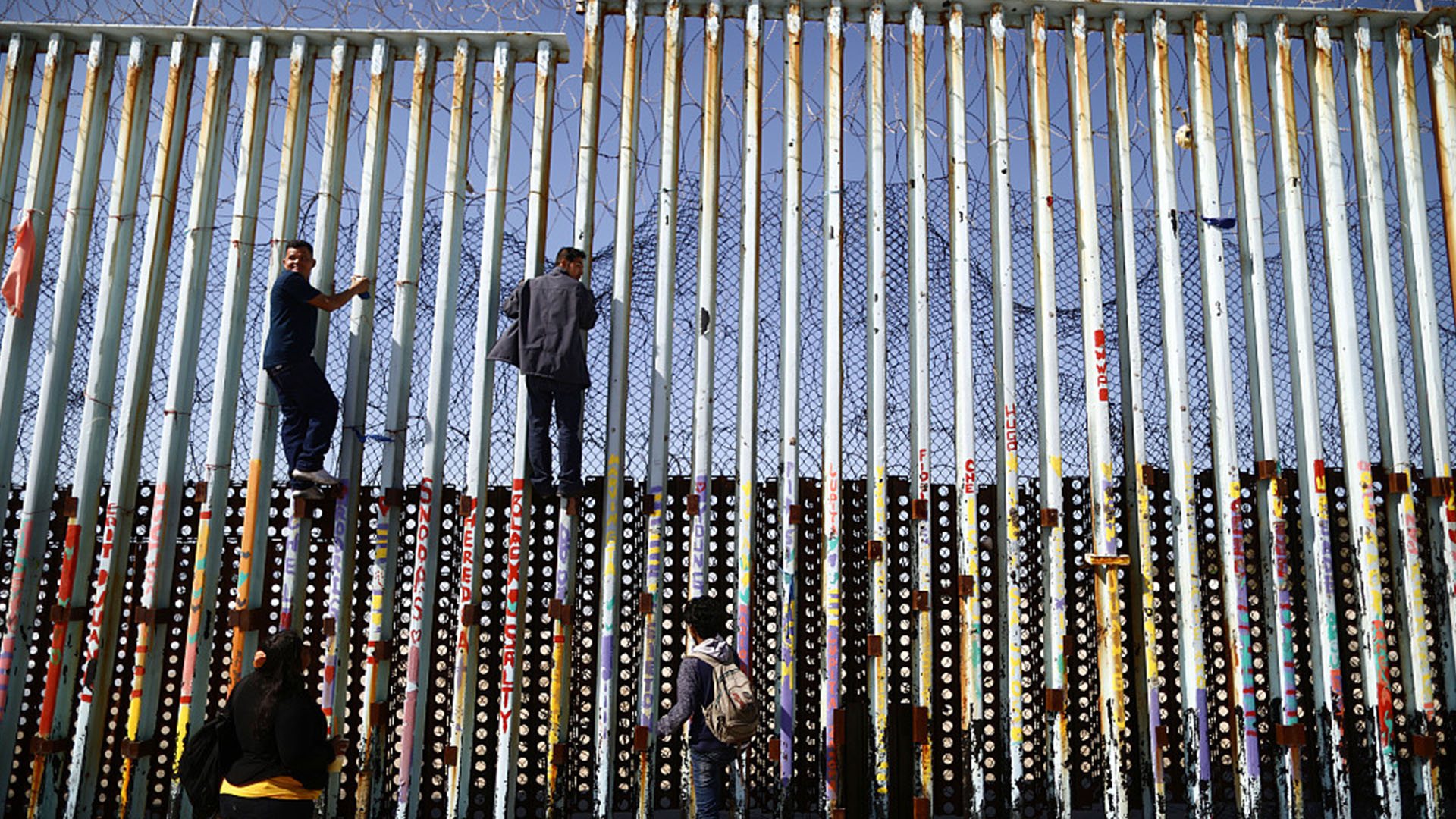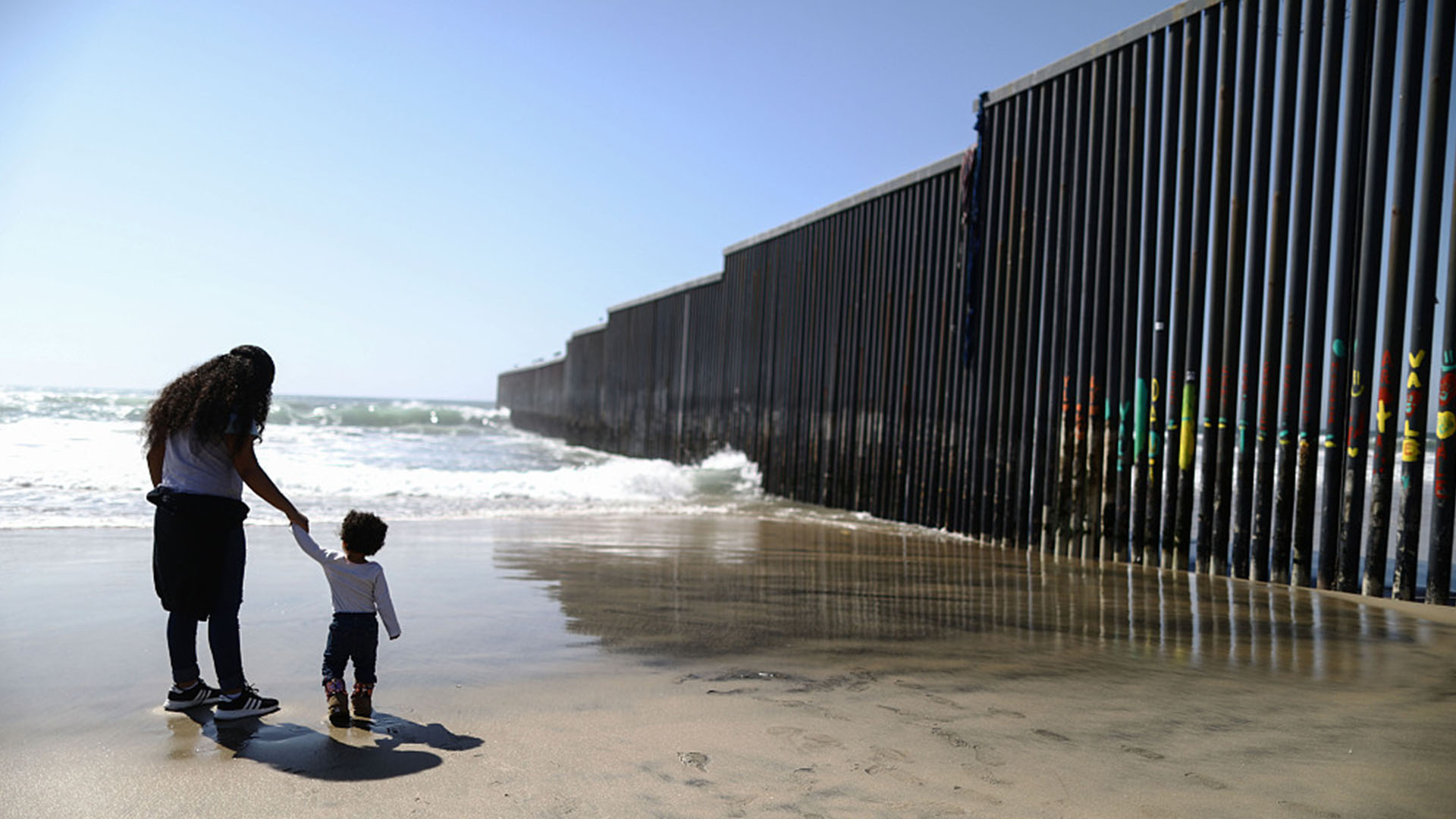
TV Show
21:08, 03-Apr-2019
How much would it cost to close U.S.-Mexico border?
Updated
22:12, 18-Apr-2019
The Point with Liu Xin
00:53

On March 30, U.S. President Trump threatened to close the U.S. border with Mexico within a week if Mexico doesn't "immediately" step up its efforts to block immigrants attempting to enter the U.S. illegally.
President Trump later tweeted the same comment, claiming that “Mexico must stop illegals from entering the U.S through their country and our Southern Border,” and if Mexico failed to do so, he “will be closing the border, or large sections of the Border, next week.”
“I don't think it's likely that Mexico comes up with anything tangible that actually satisfies or solves any of the problems that we allegedly have on the border. What we might see is that they make some public pledge that calms President Trump's ego”, commented Brandon Blackburn-Dwyer, Founder of Grasshopper Strategies.
The U.S. president has also instructed the State Department to cut off all direct assistance to El Salvador, Honduras, and Guatemala – where many of the migrants come from. All this comes as news of yet another caravan – with more than 20,000 people – is reportedly forming in Honduras. According to Mexico's Interior Minister Olga Sanchez Cordero, It is estimated that about 900,000 migrants would cross the U.S.- Mexico border by the end of 2019.
Zhao Hai, Research Fellow at Chinese Academy of Social Sciences, said, “Trump is making a political stand…he is now more emboldened than ever, and particularly now it's already in the early stage of the 2020 presidential campaign.”
“I think it's particularly important for him at this point to show his toughness against this problem,” Zhao added.
1.7 billion U.S. dollars worth of goods cross the border every day
On Tuesday, President Trump admitted that closing the southern border with Mexico could have a negative impact on the United States economy. “But security is most important,” he said.
“I'm ready to close it if I have to close it,” President Trump said to reporters on Tuesday in his Oval Office.
Mexico is the United States' third-largest trading partner after Canada and China. The U.S. and Mexico trade about 1.7 billion U.S. dollars in goods daily, according to the U.S. Chamber of Commerce. According to statistics, the U.S. border with Mexico is the most frequently crossed border in the world, with approximately 350 million legal crossings each year. If this economic gateway is closed, billions of dollars' worth of trade would be severely disrupted.
“If we were really seeing a situation where the U.S. is going to close a border that 1.7 billion dollars go across every single day, Wall Street would be in a panic. So if we get closer to Thursday or Friday and Wall Street starts to teeter, that's when you might really think this may actually happen”, Blackburn-Dwyer said.
Blackburn-Dwyer also mentioned a previous case where there was a five hour slow down and shutdown at one border crossing on Thanksgiving of last year, which reportedly have led to 5.3 million dollars loss of local sales.
“If we were to shut down the 47 legal points of entry on the U.S. southern border, we would exacerbate a food crisis and would see American companies teetering shutting down,” he said.
Is the U.S. immigration law weak?
01:03

In his tweets, President Trump said, “The Democrats have given us the weakest immigration laws anywhere in the World.” But is the U.S. immigration law really weak?
“President Trump is wrong. By comparison with almost any other developed nation in the world, the United States is one of the strictest immigration regimes in the world,” Blackburn-Dwyer reacted strongly to this question.
“He sees anything that allows anybody in his mind from a country that he doesn't like or doesn't respect as awful. This is a president with a wife who is an immigrant telling us that we have weak immigration laws because our laws require years of processing years of courts, years of hearings and investigations to vet people before allowing them to stay permanently in the United States,” he said.
Adding on this point, Zhao mentioned the fundamental problem is the relationship between the United States and Central American countries. In the past century, Central American regions have gone through many political and economic upsetting and all those miseries have prompted people to move northward into the U.S.
“Central American states need to go deeper to address those problems domestically in order to prevent people from moving out of the country,” Zhao said.
(If you want to contribute and have specific expertise, please contact us at opinions@cgtn.com)

SITEMAP
Copyright © 2018 CGTN. Beijing ICP prepared NO.16065310-3
Copyright © 2018 CGTN. Beijing ICP prepared NO.16065310-3